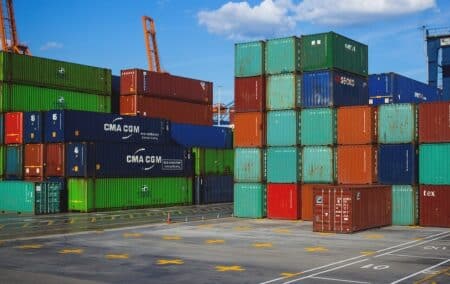Transnet has announced that it has selected Philippines-based multinational port operator as an equity partner for the joint venture to run its flagship Durban container terminal, according to BusinessLIVE.
The company selected as a partner in the 25-year deal, which will include expanding Pier 2 of the port of Durban’s container terminal, is International Container Terminal Services Inc (ICTSI), a R140bn-plus multinational with operations on six continents.
BusinessLIVE reports that the decision to appoint ICTSI comes nearly two years after President Cyril Ramaphosa’s administration announced that it would allow for private sector participation at the port, which has been hampered by inefficiencies, ageing infrastructure and congestion.
The port of Durban is Africa’s biggest harbour, handling almost half of SA’s port traffic. Pier 2 is the largest container terminal in the port, with a current capacity of 2-million 20-foot equivalent units (TEUs), a measure of trade volumes at container ports.
The deal is the first port privatisation for Transnet, which has faced criticism for the poor performance of its facilities. South Africa’s ports rank among the worst in the world in terms of efficiency and reliability. A 2021 World Bank index of container port performance ranked Durban 364th out of 370, and two other Transnet ports in the bottom 10.
Transnet CEO Portia Derby is quoted as saying: ‘Private sector participation in Pier 2 is a key catalyst for repositioning the Port of Durban as a container hub port. We are delighted to have a global player of ICTSI’s standing on board to drive this process.’
According to the report, Transnet will establish a special purpose vehicle (SPV) with ICTSI to run the Durban port for an initial 25 years, with the option to extend the contract to a maximum of 30 years in the event of berth-deepening of the North Quay at Pier 2 being delayed.
Transnet will own 50% plus one share of the SPV and non-current assets of the port will be transferred to the new company, which will also be required to adhere to the government’s BEE transformation targets.

